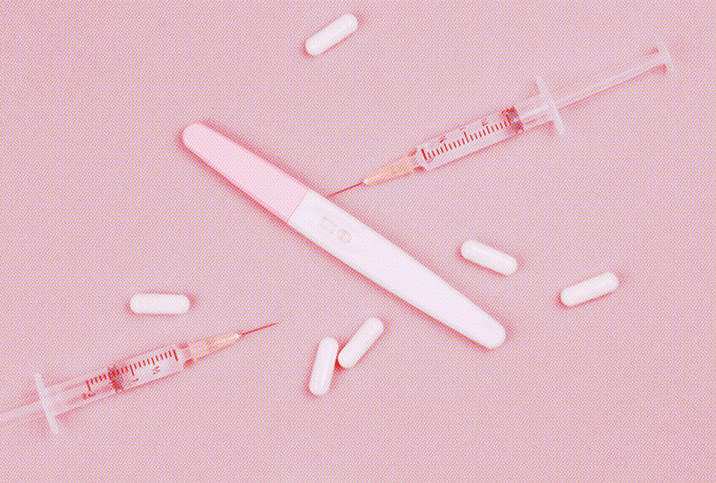Make the Most of Your Fertility as an Older Mom-to-Be

Getting pregnant seems simple: Sperm makes its way to the uterus where it fertilizes an egg. Only one egg is released every month from one of the ovaries, so timing matters. Women are born with all the eggs they will ever have, so as you age, so do your eggs. After age 35, the number and quality decline, as does your fertility, and getting pregnant becomes less simple.
Optimizing opportunities
To start with, undergo a preconception checkup to make sure you and your partner are both healthy. (For example, certain problems such as thyroid imbalances and hyperprolactinemia can easily be treated.) Folic acid supplementation and prenatal vitamins may be recommended. Pay attention to your cycle and time sex accordingly: Knowing when you're ovulating can massively increase your odds. Vaginal discharge (which becomes more thin and slippery) and basal body temperature (which rises slightly) can both be tip-offs. Ovulation predictors can also help.
How you have sex doesn't really matter (although sitting and standing positions decrease the likelihood of sperm getting where it needs to go, thanks to gravity). After sex, stay in bed for 10 to 15 minutes with your hips elevated on a pillow, giving sperm ample time to pass the cervix. Sperm can live inside you for five days, so daily sex isn't necessary. When you do have sex, keep it fun and exciting—don't let it become a chore.
Exercise regularly, but don't overdo it—this can cause women to stop ovulating and force irregular menstrual cycles. Maintain a healthy weight, and eat a balanced diet high in fruit, vegetables and whole grains, and low in processed and red meats, caffeine and saturated and trans fats.
Take care of yourself: Stay hydrated, get plenty of sleep and focus on stress relief (yoga, meditation, acupuncture, massage or whatever else brings you peace and calm). Limit caffeine to one portion a day as excess caffeine can inhibit ovulation.
To optimize his fertility, your partner should avoid hot showers/baths, not wear constrictive pants and underwear (yes, that really makes a difference), be careful with cycling and avoid sitting with his laptop on his lap (sperm is highly temperature-sensitive). Diets high in fish and walnuts have been linked to improved sperm quality and motility. Inversely, soy has been linked to reduced sperm count.
What to avoid
Don't work yourself up about a time line or create strict rules and guidelines around conception tactics. This not only places your body under stress, making it less likely you'll conceive, but also takes a toll on your mental health as well as your relationship with your partner. You don't need to seek help if you don't get pregnant right away—give it some time. If you do end up consulting a professional, don't feel embarrassed, sad or guilty. Fertility isn't an easy road for everyone, and you have options.
When to seek help
If you have unsuccessfully tried to conceive for six months, see your primary care physician or OB-GYN, who will diagnose any medical causes or complications, offer treatment and clarify your options, including in vitro fertilization (IVF) with your own or donor eggs, and intrauterine insemination (IUI), as well as surrogacy and adoption.
Many women still become pregnant naturally after the six-month mark, but it's good to begin exploring alternatives then. Your partner should also be evaluated at this point for any fertility problems.
Be patient. One survey found conception rates for women over age 35 have more than doubled since 1990, so stay positive.


















